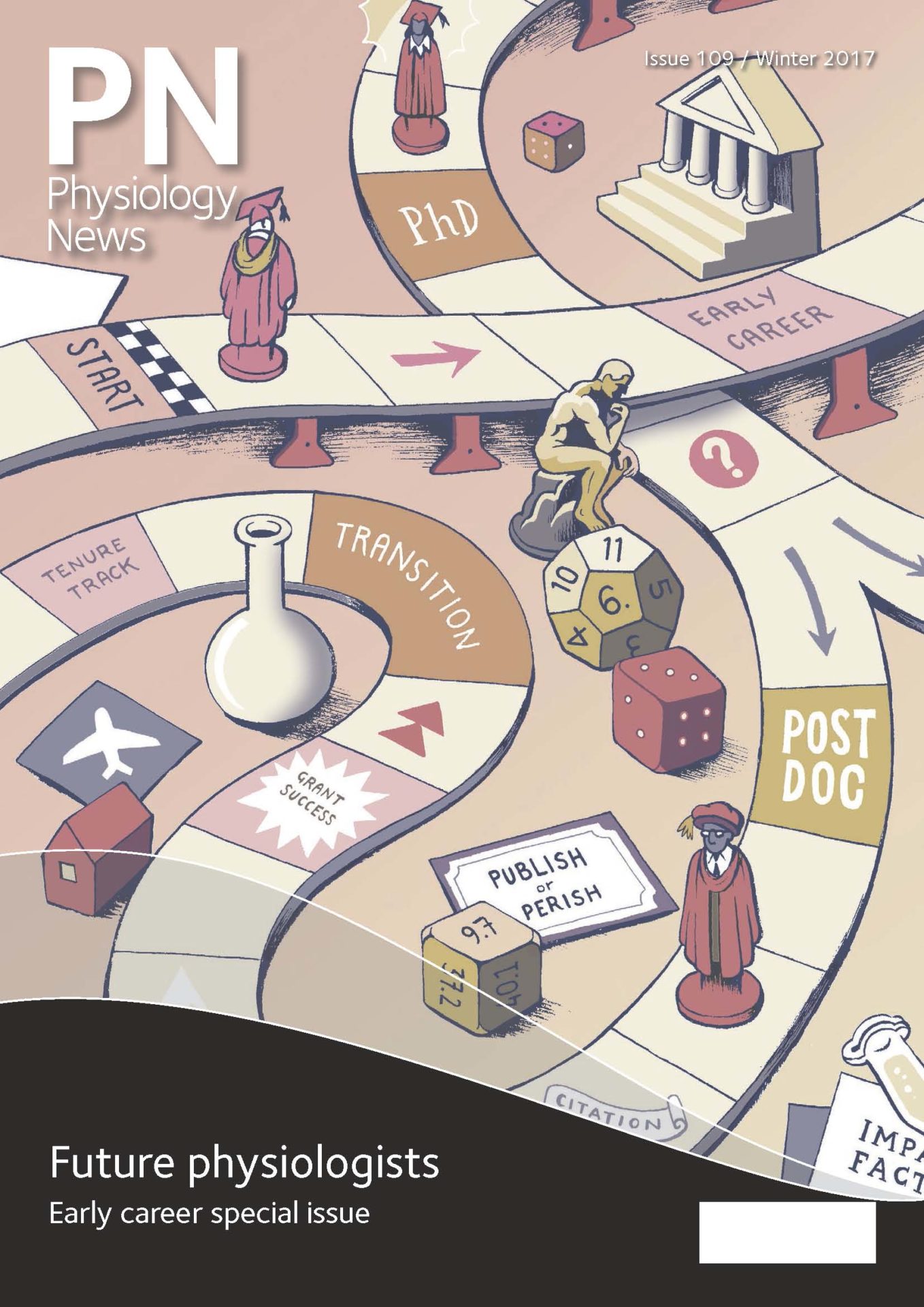
Physiology News Magazine
President’s View: Ensuring physiology flourishes
News and Views
President’s View: Ensuring physiology flourishes
News and Views
David Eisner
President, The Physiological Society
https://doi.org/10.36866/pn.109.6
It seems difficult to believe that I am more than halfway through my term as President. I have been persuaded by the powers that be at Physiology News that it would be good to institute a Presidential column. The deadline is now only a few days away and I feel like a vicar on a Saturday night desperately thinking of something to write.
A major thing that has exercised me, not just in my role at The Society but also in my own laboratory, is the question of ‘What is Physiology?’ The Society has begun to develop a new five-year strategy, and the first meeting of its steering group was devoted to trying to agree a definition. When I began my academic career, physiology could be defined, perhaps circularly, as ‘that which is done in Physiology Departments’. In the subsequent 30 or so years, departments of Physiology have virtually disappeared. Many, possibly even more, people are doing physiology now but do not always realise it. My own university, like others, has reorganised into organ- and disease-based Divisions, and members of The Society can be found in 10 of these Divisions.
There are, of course, arguments in favour of an organ-based structure. As someone who works on the heart, I benefit from mixing with colleagues who are biochemists, pharmacologists, geneticists, etc. On the other hand, I still feel that I have much more in common with other physiologists even if they do work on the kidney, brain or whatever other body system. Not only do we share a conceptual approach, but the experimental techniques are often very similar. Because of the structure, my own PhD students naturally gravitate to cardiovascular meetings but, gratifyingly, are always pleasantly surprised by how much they get out of meetings of our Society.
There is nothing new, of course, about a concern for the fragmentation of physiology. Ole Petersen, a previous President, wrote in 2000 (Petersen; Eur J Physiol 441, 725–725), at a time when the loss of separate physiology departments was already underway, ‘Physiologists should live in their own house, but collaborate extensively with other disciplines’. He also pointed out that physiologists, for a variety of reasons, suffer from a lack of self-confidence compared with their molecular colleagues. Another of my predecessors, Denis Noble (Committee Secretary, before the post of President was established), has argued consistently that our physiology should not simply be regarded as being slavishly controlled by genes (Noble et al., 2014; J Physiol 592, 2237–2244).
A lack of identity in the physiological community is also of concern to our Society. At a time when most physiologists worked in physiology departments, it was natural to become a member of The Society. Indeed, when I joined the staff of the Department of Physiology at UCL, an item on the agenda of staff meetings was always what was happening at The Society. With departmental reorganisations, there is a danger that the organ- and disease-based societies and their meetings are becoming the new defaults. Whatever the cause, The Physiological Society realises that it cannot afford to be complacent about attracting and retaining members.
It goes without saying that the future success of physiology lies entirely within the hands of today’s early career researchers. Affiliate Members of The Society contribute greatly to the life of The Society and its meetings. I am delighted to see that they have organised a two-day Future Physiology meeting to be held in Leeds, which might be occurring as you read this issue.
The loss of separate departments of physiology has occurred to a much smaller extent in Germany. This may be a consequence of the fact that physiology has a defined identity in the medical curriculum there. This, in turn, contrasts with the situation in the UK where the adoption of problem-based learning and integrated courses has taken responsibility for the medical curriculum away from the practitioners of individual subjects.
I end with a shameless advertisement. There will be time to discuss differences across Europe as well as enjoy first-class physiology when we join with our colleagues from the German and Scandinavian Societies as well as the Federation of European Physiology Societies in the first of a series of Europhysiology meetings in London (14–16 September 2018). This meeting will be like one of our usual Annual Meetings but with the bonus participation of many of our European colleagues. See you there!
